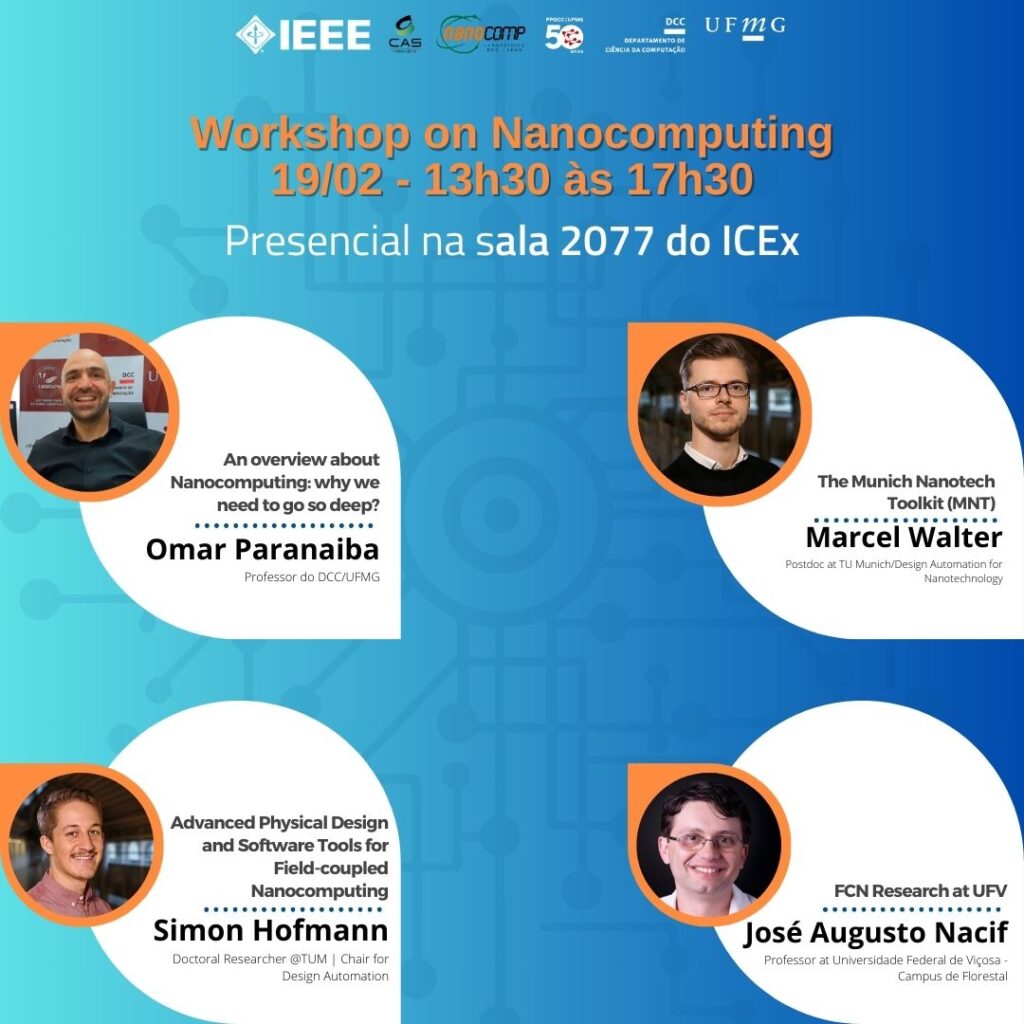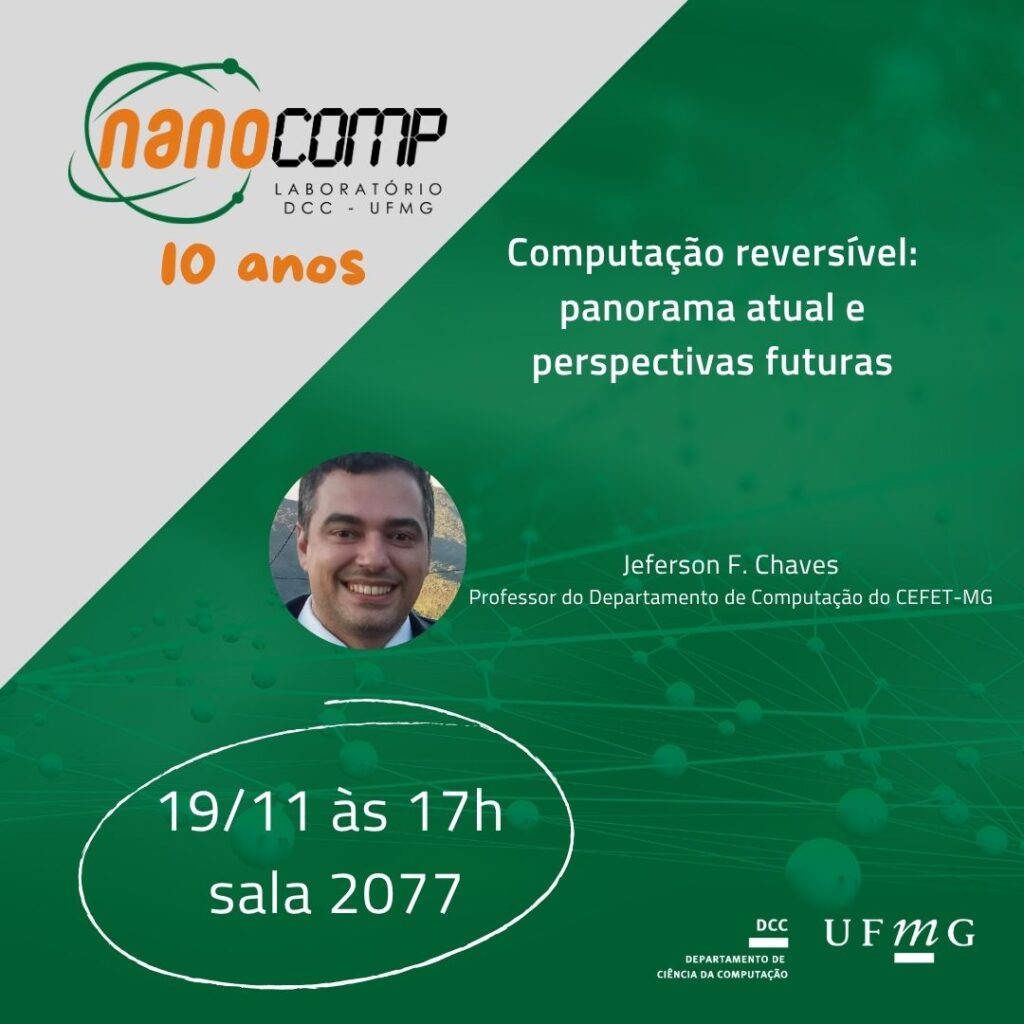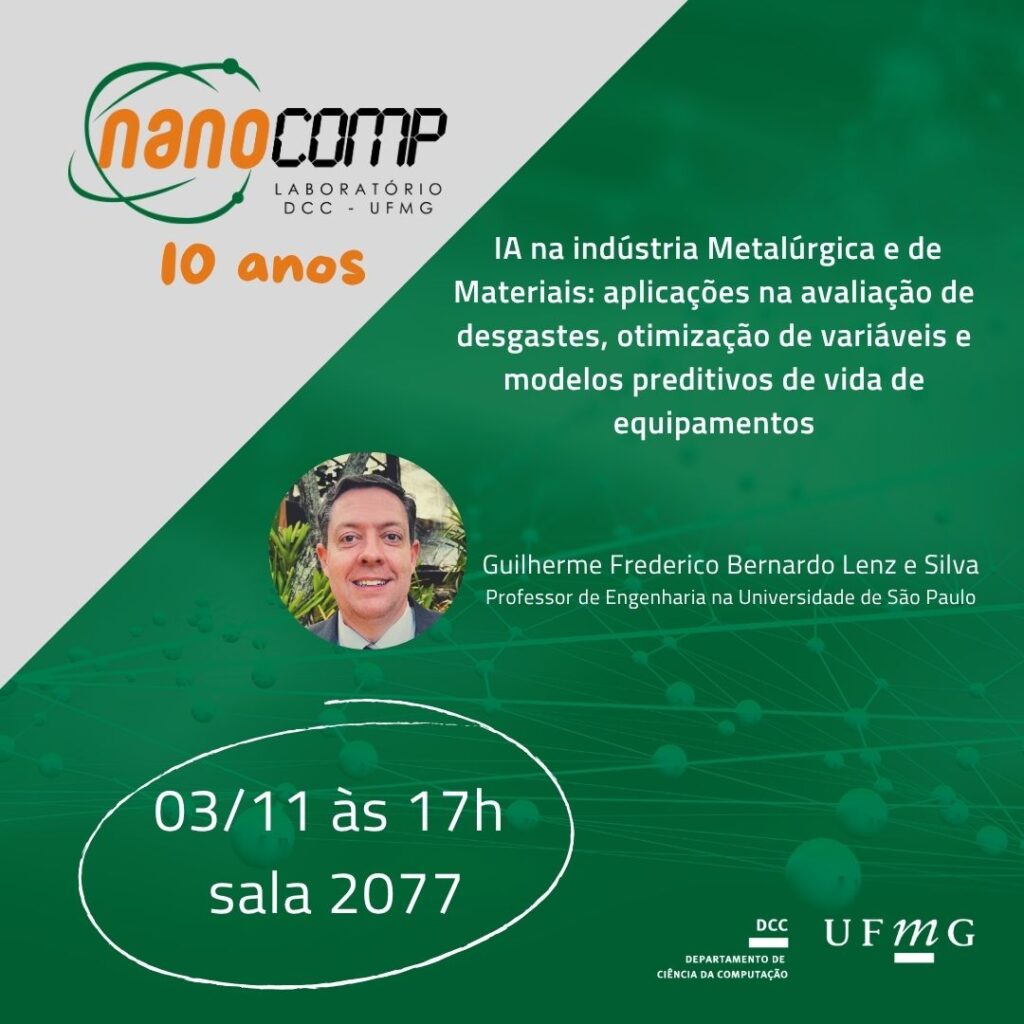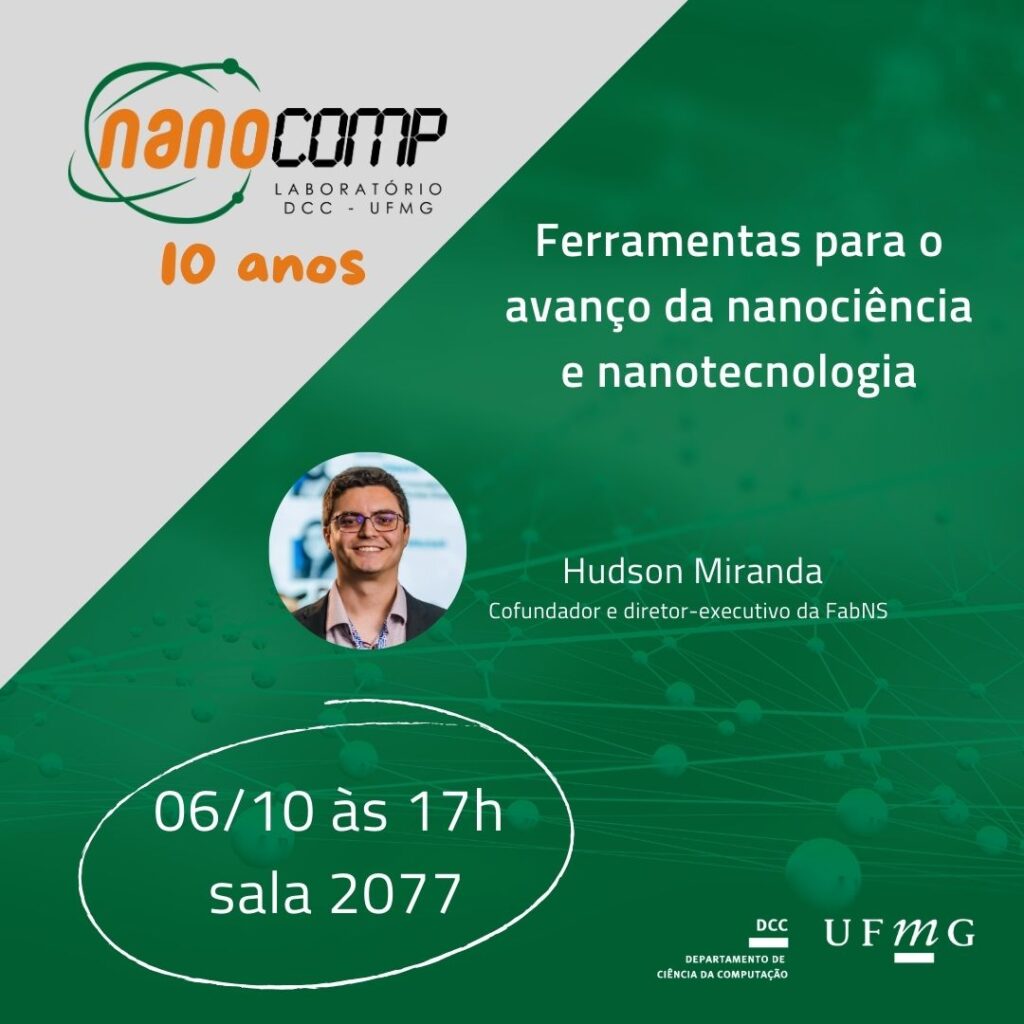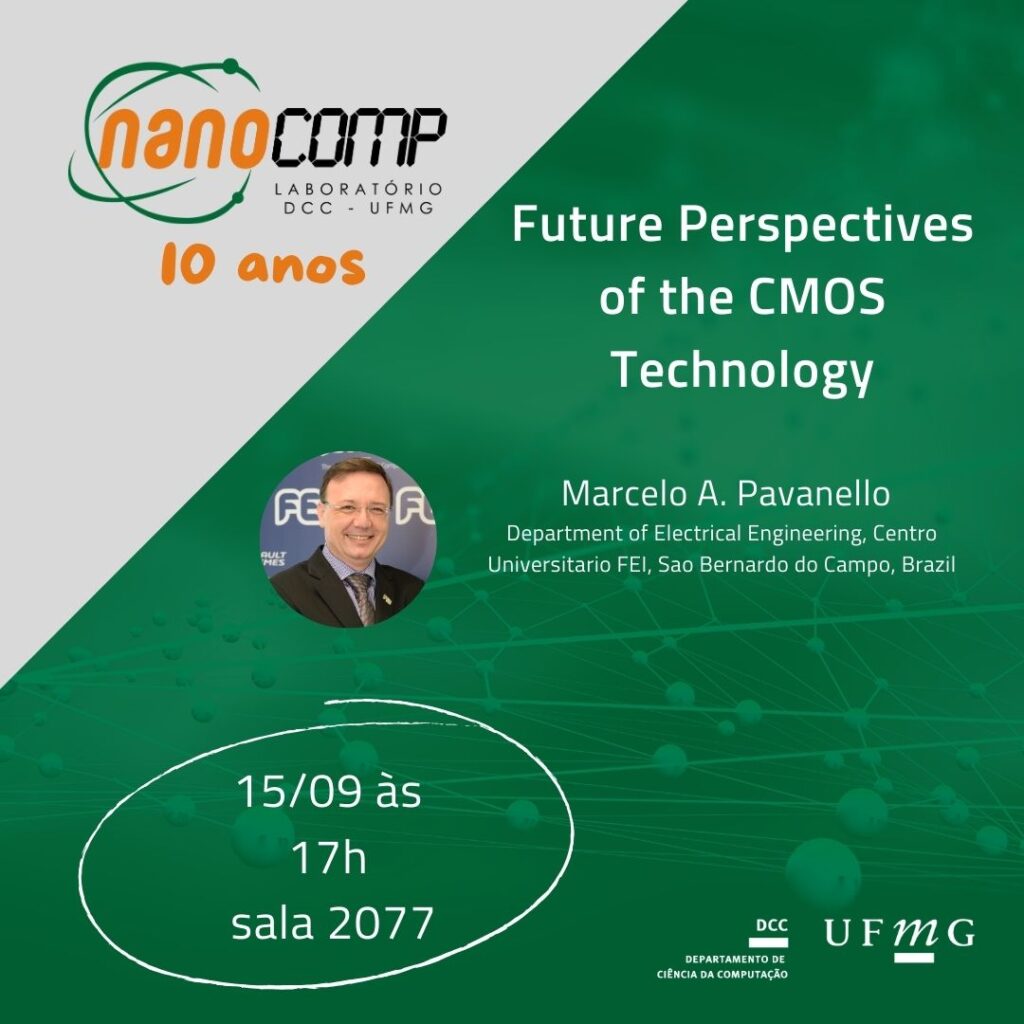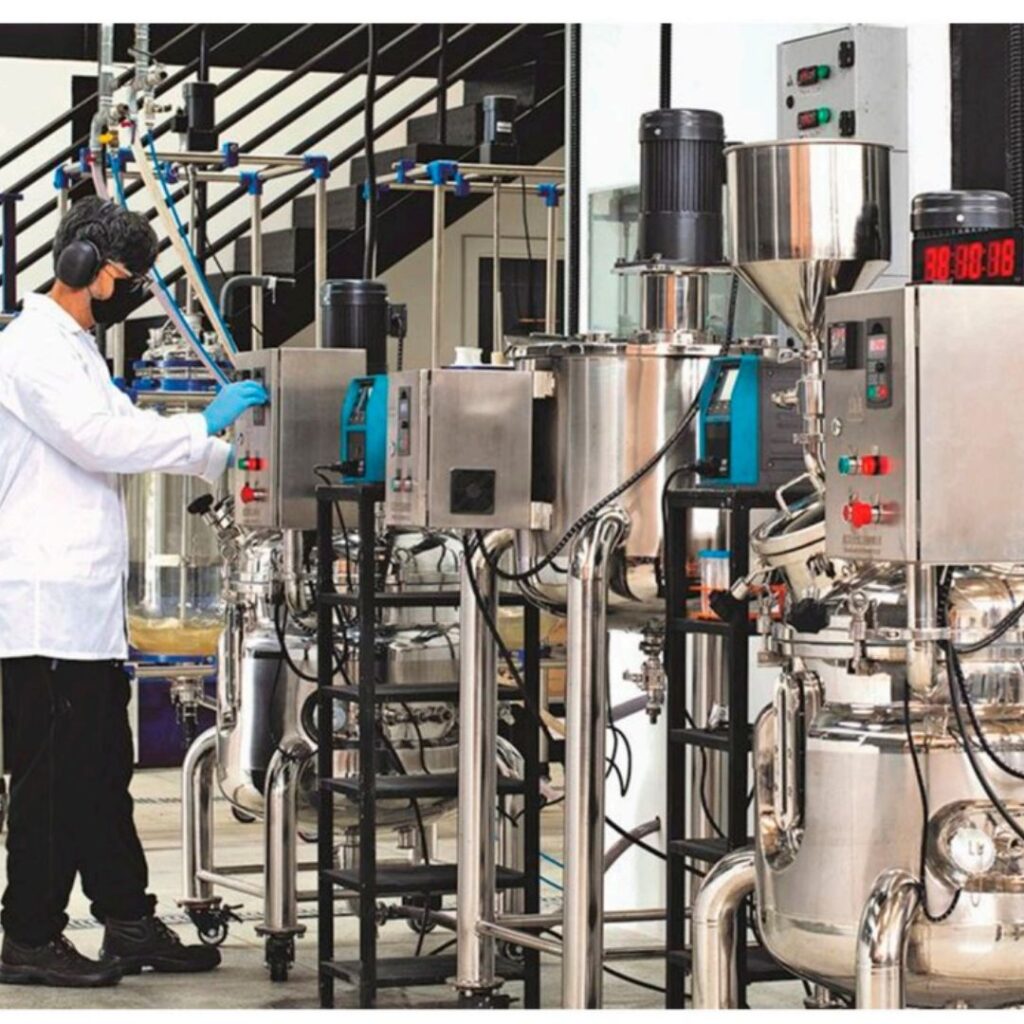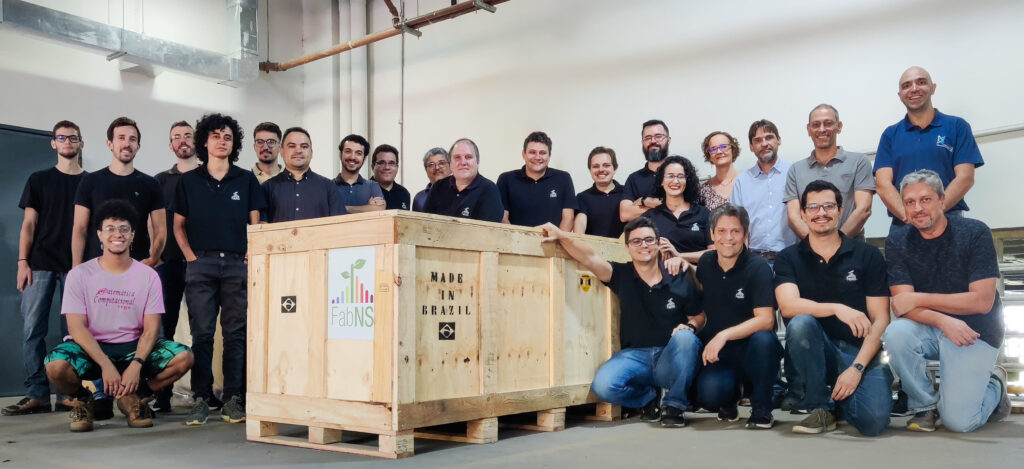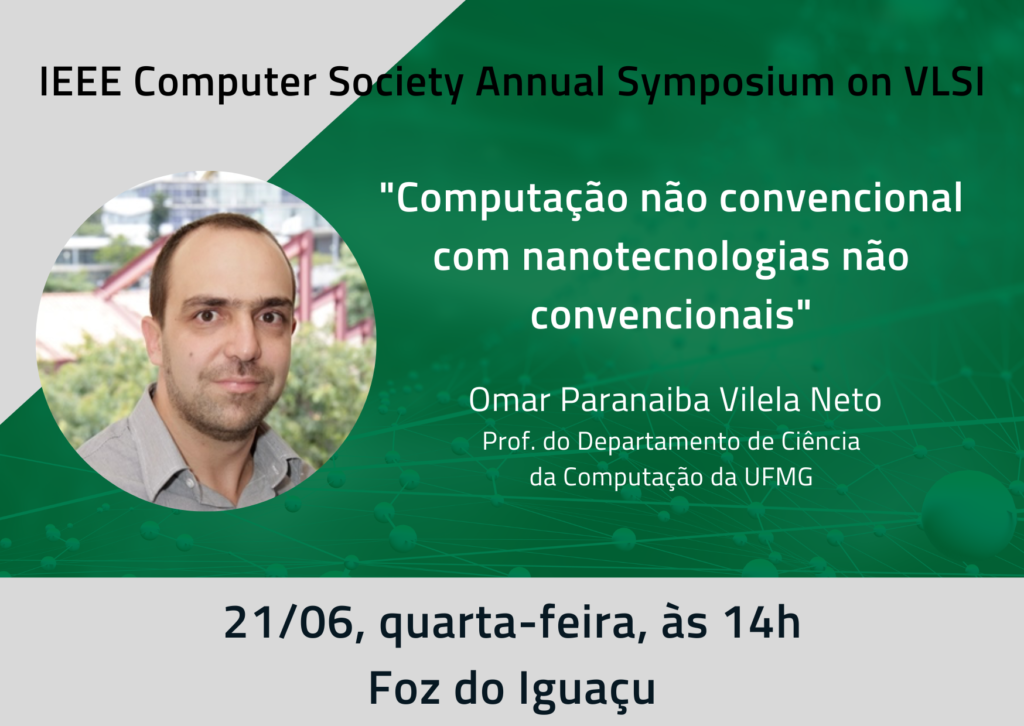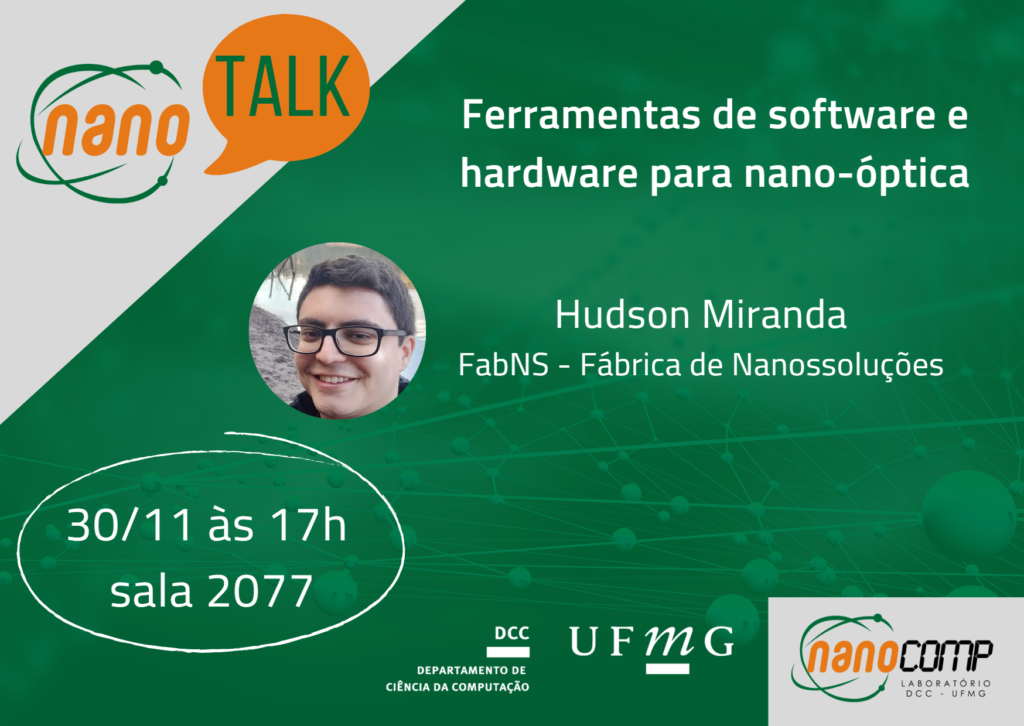Na próxima quarta-feira, 19, de 13h30 às 17h30, na sala 2077 do Instituto de Ciências Exatas (ICEX) da UFMG, o Departamento de Ciência da Computação (DCC) irá promover quatro palestras com pesquisadores nacionais e internacionais que irão discutir a Nanocomputação. Veja abaixo a programação do “Workshop on Nanocomputing” e o resumo das palestras:
Omar Paranaiba Vilela Neto (DCC/UFMG): An overview about Nanocomputing: why we need to go so deep?
Many scientists state that Moore’s Law is close to its end. One of the main reasons is the physical limit of silicon transistors’ miniaturization. No prominent successor technology to the current CMOS logic exists, but some possible alternatives have been investigated. So, a question comes to mind: What will we have in the future? Do we need to continue controlling the electric current to perform computation? Are there other alternatives? A wide variety of new nanotechnologies will generate many possibilities for developing new computational applications at low energy, high speed, and high resilience. Let’s see some of these possible alternatives.
Marcel Walter (TUM – Munique): The Munich Nanotech Toolkit (MNT)
Field-coupled Nanocomputing (FCN) technologies have demonstrated immense potential in advancing beyond-CMOS computation, with breakthroughs like Silicon Dangling Bond (SiDB) devices pushing the boundaries of atomic-scale logic. However, the lack of modern, robust, and open-source software tools has hindered progress in FCN design automation. This talk introduces the Munich Nanotech Toolkit (MNT), an open-source software suite designed to address these challenges. The MNT offers a versatile platform for FCN circuit design, encompassing logic synthesis, physical design, verification, and simulation. With accessible interfaces including a Command-Line Interface (CLI), a C++ library, and Python bindings, the MNT adheres to modern software practices, ensuring cross-platform compatibility and rigorous testing. We will see how the MNT enables efficient and scalable workflows, serving as both a research sandbox and a practical toolkit for FCN development, and discuss its role in shaping the future of nanocomputing.
Simon Hofmann (TUM – Munique): Advanced Physical Design and Software Tools for Field-coupled Nanocomputing
Building on the foundations laid in the first talk introducing the Munich Nanotech Toolkit (MNT), this second part delves deeper into advanced methodologies for the physical design of Field-coupled Nanocomputing (FCN). In the past, various methods for obtaining FCN layouts from circuit specifications have been proposed, their reliance on heuristic approaches often results in suboptimal quality, demonstrating a significant opportunity for enhancement. In this presentation, we discuss recent breakthroughs in advanced physical design methodologies for FCN leveraging techniques such as reinforcement learning and graph-oriented layout design processes. We also showcase post-layout optimization strategies that effectively reduce area and delay by eliminating unnecessary wiring and strategically repositioning gates for optimal placement. Additionally, to support designers in creating FCN layouts, we highlight two software tools: MNT Bench, a comprehensive benchmarking suite, and MNT Designer, a novel physical co-design tool. By zooming in on these physical design innovations of the MNT framework presented earlier, this talk showcases how advanced tools and methodologies can further streamline workflows and elevate the field’s capabilities.
José Augusto Nacif (UFV): FCN Research at UFV
This talk highlights research at Universidade Federal de Viçosa in field-coupled nanotechnology (FCN), focusing on quantum dot cellular automata (QCA), nanomagnetic logic (NML), and atomic silicon dangling bonds (SiDBs). During the last 10 years, our group has developed several contributions in placement and routing, clock schemes, and gate libraries for field-coupled nanotechnologies. We currently focus on SiDBs interconnection and improving state-of-the-art FCN placement and routing algorithms with cutting-edge artificial intelligence techniques.
